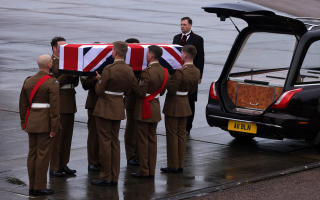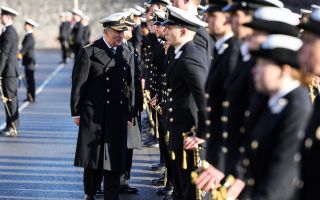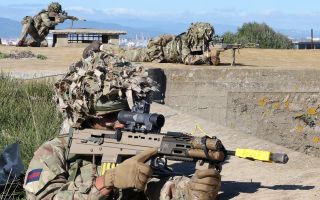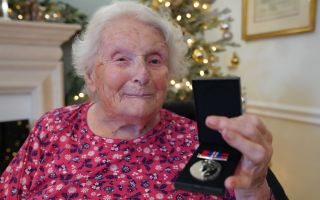
Armed Forces need the right people in the right places to end bullying and misogyny

Sarah Atherton, a former Minister for Defence People, member of the Defence Select Committee and MP, says there has been an improvement in the treatment of people in the military, but the Armed Forces now need the right people in the right places to make lasting change.
Another investigation has confirmed that misogyny, bullying, and unacceptable behaviour continue to persist within the military, writes Sarah Atherton.
Recently, the First Sea Lord issued an apology to Lieutenant Sophie Brook for the persistent abuse she experienced while serving on board a nuclear-armed Vanguard-class submarine, part of the UK's At Sea Deterrent.
A two-year inquiry was conducted into the allegations made by Lt Brook.
This inquiry led to 70 allegations being investigated, with 43 witnesses interviewed.
As a result, 28 further investigations were launched, leading to:
- Eighteen service personnel being discharged,
- Four personnel being demoted,
- Six subjected to administrative action.
The inquiry's final report accepted 37 recommendations.
While many initiatives aimed at preventing future abuse are now in place, the investigation highlighted continued concerns around poor leadership, inadequate discipline, bystander culture, inappropriate sexual behaviour, and deeply ingrained misogyny.
During my five years in Parliament, working on defence issues and advocating for equality for service members, I repeatedly received complaints from personnel who felt they were treated unjustly by senior officers, the Ministry of Defence (MOD), the Service Justice System, or the Service Complaints Ombudsman for the Armed Forces.
Many disturbing, high-profile cases crossed my desk as I developed the Defence Select Committee inquiry, Women in the Armed Forces: Protecting Those Who Protect Us.
This inquiry exposed a litany of appalling behaviours and leadership failures that ruined lives and careers.
In 2022, as a result of these findings, the UK's MOD began implementing significant procedural changes. These changes included:
- A zero-tolerance policy
- The establishment of the Defence Serious Crimes Unit
- Improved victim support systems
- The creation of admissibility teams to handle complaints of a sexual nature, ensuring these are removed from the chain of command
- A range of initiatives to improve reporting, leadership, and witness support.
Certain issues repeatedly surfaced in the evidence I received: lost documentation, contested medical diagnoses, breaches of confidentiality, poor leadership, and cover-ups by senior officers.
Many of these problems were also highlighted in the Navy's 37 recommendations.
Have the initiatives introduced through my report in 2022 made a real impact?
It's too early to tell.
The events in Lt Brook's case occurred between 2014 and 2020 before these reforms were in place.
However, we cannot afford to take a "wait and see" approach, that’s not good enough for our serving personnel and veterans.
Force-wide reforms and the need for independent oversight
At a force-wide level, during this investigation, the Royal Navy commissioned a King's Counsel to oversee the legality of the process, providing some independent scrutiny.
Nevertheless, mistrust in the military's internal investigation processes remains high.
The Government aims to rebuild trust by appointing an Armed Forces Commissioner, who will act as an advocate for service personnel.
This role is intended to restore public and service members' confidence in military justice.
Once the appointment is ratified through legislation, hopefully before Christmas, and responsibilities are clearly divided between the Commissioner and the Ombudsman, positive change can accelerate.
So where do we go from here?
Lt Sophie Brook's bravery and determination in seeking justice will likely inspire others to come forward.
Having spoken with the First Sea Lord in the aftermath of this case, I am confident that he is committed to changing the culture and ensuring that all personnel raising concerns will be heard and taken seriously.
While there is still much work to be done, the Royal Navy's response to these issues marks significant progress.
Ten years ago, such a response would have been unthinkable.
There are still lessons to be learned about preventing and managing incidents like this, but it is clear that things are moving in the right direction – now we need the right people in the right places to make lasting change.









